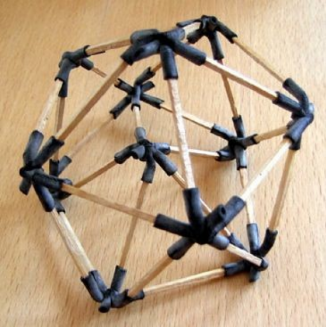Children in the First World have a lot of choice when it comes to scientific toys. In fact, there are whole stores devoted to selling things like robotics kits, ant farms, and simple microscopes. In the developing world, however, such fancy toys are relatively scarce. So, what's an adult to do if they want to get the local children interested in the sciences? Well, in the case of Arvind Gupta, they show the kids how to make scientific toys from trash.
Gupta's story began in the 70s, when he was an engineering student at the Indian Institute of Technology. While he was there, he volunteered to teach the children of the mess staff, who couldn't afford a formal education.
Upon graduation, he went on to work at Tata Motors, where he helped to build trucks. After five years of doing so, however, he decided that it wasn't the career for him. In 1978, he took a one-year leave from his job, and took part in the Hoshangabad Science Teaching Program. "The objective was to make science fun and exciting for village children using simple, low-cost materials available in their environment," he told us. "This experience had a profound impact on me. I thought it was much more satisfying than making trucks."
Gupta proceeded to devote his life to designing toys that demonstrate scientific principles, that children can build for themselves out of cheap or free parts. He's written numerous instructional books on the subject, starting with 1986's Matchstick Models and other Science Experiments, which has been reprinted in 12 languages.
Today, he is part of the four-person team that runs the Children's Science Centre, at India's Pune University. Together, they have designed approximately 800 trash-based educational toys ... so far. Instructions and explanations for all of the toys are available copyright-free through their Toys-from-Trash website, as are all of their books, and over 250 linked YouTube videos.
"Every day over 50,000 children and teachers across the world watch these videos," said Gupta. "Thousands of books are downloaded every day and this fills our hearts with hope and joy. We feel privileged to be able to share our work with at least some children across the world."
(Excerpt from article "Indian inventor creates children's science toys from trash")

